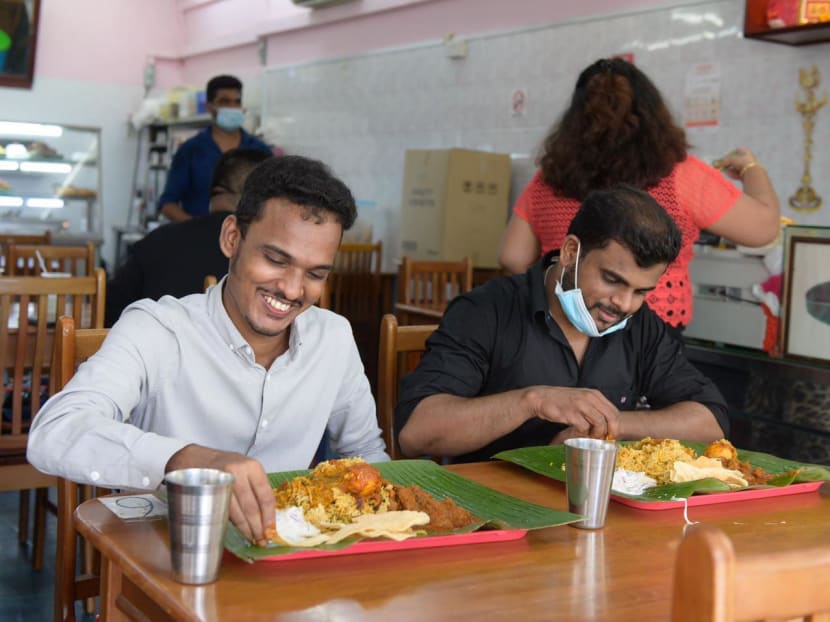COVID-19 restrictions for migrant workers in dormitories to be further eased, more can make community visits

SINGAPORE: Singapore will further relax COVID-19 restrictions for migrant workers living in dormitories and let more vaccinated workers visit places in the community, the Ministry of Health (MOH) said on Monday (Nov 15).
From Dec 3, authorities will allow 3,000 vaccinated migrant workers per day to visit any location in the community, for up to eight hours per visit.
This is up from 3,000 migrant workers per week currently, with visits limited to Little India and Geylang Serai.
The vaccinated workers have to take a pre-event antigen rapid test (ART) before they leave their dormitories, as an added precaution, said MOH. Unvaccinated workers remain ineligible for community visits.
The ministry said that the migrant worker dormitories are now “more COVID-resilient”, with 98 per cent of migrant workers residing in dormitories fully vaccinated.
Giving an update on the COVID-19 situation in dormitories, Manpower Minister Tan See Leng said that workers are taking booster vaccinations when they become eligible.
About 61 per cent of fully vaccinated workers will become eligible for booster jabs over "these three months, up to January 2022", said Dr Tan at a COVID-19 multi-ministry task force press conference.
"The response has been encouraging thus far with 81 per cent of these eligible workers to date having been administered with a booster shot," he said.
"The rate of COVID-19 infections in the dormitories has declined over the past two to three weeks."
He added that the vast majority of the infected workers are asymptomatic or display very mild symptoms. About 0.1 per cent to 0.2 per cent of infected workers require hospitalisation.
"These workers are able to recover on their own, minimising the strain on our healthcare system," the Manpower Minister said.
COVID-19 infections in the dormitories have “stabilised” over the last few weeks, with an average daily number of 143 migrant workers testing positive using a polymerase chain reaction (PCR) test in the last week, MOH added.
Migrant workers in dormitories are also being tested weekly, regardless of vaccination status, with the exception of recovered workers.
From Dec 3, workers will also be allowed to visit recreation centres daily with an extended duration of eight hours per visit. This is up from the thrice weekly cap on recreation centre visits, for up to four hours each visit.
Unvaccinated migrant workers are required to undergo a pre-visit test to enter the recreation centres. They can use ART negative results from rostered routine testing, or a pre-event ART.
For now, visits are limited to designated recreation centres, but from mid-December, migrant workers will be able to visit any recreation centre of their choice.
"This will enable them ... to meet with their friends and if they have family members living in the other dormitories as well," said Dr Tan.
The Ministry of Manpower (MOM) is working with recreation centre operators to increase the variety of activities at the recreation centres, such as organising movie screenings and sports games. They are also putting in place processes to manage a larger number of visits from migrant workers.
"I would like to thank our migrant workers for their continued patience and trust in us. We've only been able to achieve this progress with all of your cooperation and all of your support," Dr Tan added.
Responding to a question from CNA on the progress of quick build dormitories, Dr Tan said that there are 16 such dorms at 11 locations. Four of them have been repurposed into onboarding centres for migrant workers arriving in Singapore.
Watch the full news conference, including the Q&A session with journalists:








